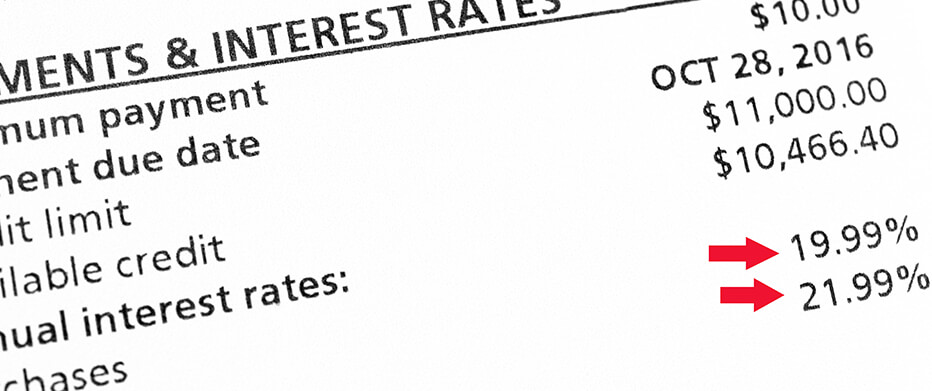Why Credit Card Balances Grow So Fast: The Power of Compound Interest


Key Takeaways
- Double-digit interest, combined with daily compounding, makes it challenging to pay off existing credit card debt.
- Credit card debt grows fast because interest compounds daily, meaning you pay interest on the interest every day there is an outstanding balance.
- The interest compounding schedule has a significant effect on the total amount you owe on long-term debt like high balance credit card bills.
Borrowing money includes certain costs, which often include upfront fees, interest charges on the principal balance and a late charge if you miss a payment. What you might not expect are the hidden costs associated with borrowing money due to compound interest.
What is Compound Interest?
Banks set their interest rate that you receive based on the type of loan, your credit, and other underwriting factors. The interest will also accrue on different schedules depending on the type of loan or line of credit you choose. The interest accrual rate will result in interest due on the accumulated interest charges, referred to as compounding.
For example, if you borrow $1,000 and the lender charges an annual interest rate of 12%, you will owe $120 each year in interest. In the above example, the first month you will owe $10 in interest, increasing the amount owed to $1,010. You will then pay interest on the $1,010, due to compounding.
Investments benefit from compounding, making your money grow faster. When you are the borrower, the principle of compounding works against you, resulting in higher interest charges.
Nominal versus Effective Interest Rate
To express the effect of compounding, lenders must disclose both the nominal and effective interest rate. Here’s what they mean:
The Nominal Rate is the posted or advertised rate of interest and the amount you pay on the principal loan amount that remains outstanding.
Effective Rate: The effective rate represents the total interest costs after including the impact of compound interest.
For instance, a credit card charging a nominal rate of 12.99% will have an effective rate of 13.79% after including the cost of daily compounding. By the same token, a credit card with an interest rate of 29.99% will have an effective rate of 34.96% when including the effect of daily compounding. The higher the interest rate, the greater the impact compounding has on costs.
Compounding Frequency:
Loans and lines of credit will compound the interest at regular intervals. The most common is annual, monthly, or daily. The more frequent the interest compounds, the more you pay in interest. When a loan compounds monthly, and you make a monthly payment, you pay compound interest from the time interest accrues on the account to the day of the payment, which can be between 10 and 20 days. When interest compounds daily, every day you carry a balance, you pay interest on the accrued interest charges.
Mortgage loans, car payments, and personal loans tend to compound interest monthly. Credit card companies compound interest daily.
Conclusion
Paying down credit cards is particularly challenging because most credit card debt includes double-digit interest rates combined with interest that compounds daily. The combination of these two cost factors means the majority of your minimum credit card payment goes towards interest charges rather than debt reduction.
Anytime you carry forward a balance on credit card debt; you will have a direct impact of compound interest on your cost of borrowing. These extra costs are one of the primary reasons it is difficult to pay off credit card debt.
FAQ

REPRESENTATIVE EXAMPLE OF APR
If you borrow $30,000 over a term of 5 years (60 months) with an APR of 4.99% you will pay $566.00 each month. The total amount payable will be $33,959.97, with total interest of $3,959.97.
ANNUAL PERCENTAGE RATE (APR)
Annual Percentage Rate (APR) represents the annualized interest rate you are charged for borrowing. It is the combination of the nominal interest rate and some additional costs such as fees involved when incurring debt. Our lender offers APRs for personal loans, cash advance loans, installment loans and debt consolidation loans from 4.99% to 35.99%. Since New Start Capital does not directly issue loans, we cannot deliver any specifics or guarantee the APR you will be offered. The APR depends solely on your lender’s decision, based on various factors including your credit score, credit history, income, and some other information you supply in your request. For more information regarding the APR contact your lender.